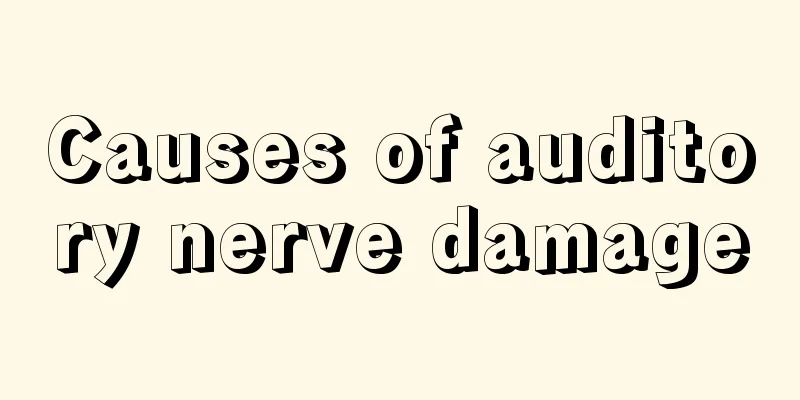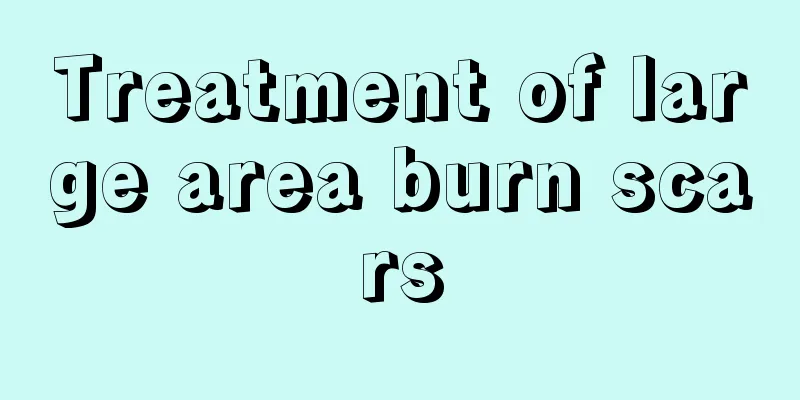Causes of auditory nerve damage

|
Because we have hearing, we can hear moving songs, greetings from loved ones and all kinds of wonderful sounds in nature. Therefore, hearing is one of the most precious treasures God has given to humans. But if our auditory nerves are damaged, we are in danger of losing an important treasure. So what causes damage to our auditory nerves? Let me tell you, I hope you will pay more attention in the future. Noise can damage the auditory nerve. The pathway of sound conduction is as follows: sound signals pass through the external auditory canal - eardrum vibration - auditory ossicles (malleus, stapes, incus) - inner ear fluid vibration - cochlear hair cells produce electrical impulses - auditory nerve - central sound receptors in the brain, and then we hear the sound. If there is a problem in any part of this process, no sound may be heard. There are two main types of damage to hearing caused by sound: one is sudden loud noise, such as setting off firecrackers; the other is chronic noise, which occurs when working under high noise for a long time and the hearing is damaged unknowingly. Stress is likely to cause sudden deafness, a type of sensorineural hearing loss, which is characterized by a sudden loss of hearing in one ear, and may be accompanied by tinnitus, a feeling of stuffiness in the ear, etc. Pathogenesis: Stress, fatigue, emotional excitement, viral infection and other factors lead to increased secretion of adrenaline in the body, spasm and contraction of small arteries in the inner ear microcirculation, leading to ischemia and hypoxia of the inner ear, causing inner ear lesions, damage to the sound-sensing part of the inner ear, and hearing loss. Commonly used antibiotics that can damage the auditory nerve include streptomycin, dihydrostreptomycin, gentamicin, kanamycin, puromycin, neomycin, vancomycin, tobramycin, and kasugamycin. Some other commonly used drugs can also damage the auditory nerve and cause deafness, such as aspirin, furosemide, propranolol, uric acid, quinidine and anticonvulsants. If these drugs are used in combination, the incidence of adverse drug reactions will increase due to drug interactions. If your auditory nerves have been damaged, please don't be sad. Modern medicine is so advanced that we can use hearing aids to hear sounds, and we can also implant cochlear implants to let everyone hear the wonderful sounds of the world again. Finally, the editor hopes that everyone can protect their hearing well. |
<<: What to do if your hair becomes oily easily
>>: How to repair the sympathetic nerves
Recommend
Can I take birth control pills to delay my period?
Many people choose to take birth control pills wh...
How to remove the fishy smell of eggs
Eggs are a frequently used ingredient in daily li...
Can't people with thyroid cancer eat melons?
Patients with thyroid cancer can eat melon. Melon...
She died suddenly at the age of 38! It was only 3 days from diagnosis to death. This kind of cancer is very dangerous
In this fast-paced era, we are all like clockwork...
When is the best time for brain cancer patients to exercise
Many people have found that once brain cancer is ...
What to do if you have diarrhea after drinking peach blossom tea
Peach blossom tea is a very common tea drink. In ...
Meal for half a month after gastrectomy
Patients who have undergone gastrectomy should st...
How to treat low platelets? Try these foods
Various accidents are always likely to happen in ...
If you want to stay away from liver cancer, you need to learn more about prevention methods
Liver cancer is a common type of cancer, and it i...
Can brain cancer patients do strenuous exercise
There are many ways to exercise in society, such ...
What foods can lower blood pressure?
Now that living standards have improved, the numb...
What should I do if I always sneeze due to allergic rhinitis?
The time when seasons change is when allergic rhi...
Is hypertensive heart disease very serious?
Hypertensive heart disease is of course a relativ...
How to effectively treat ichthyosis
For the treatment of ichthyosis, what is more imp...
Early symptoms of throat cancer in women
Although the early symptoms of female throat canc...









